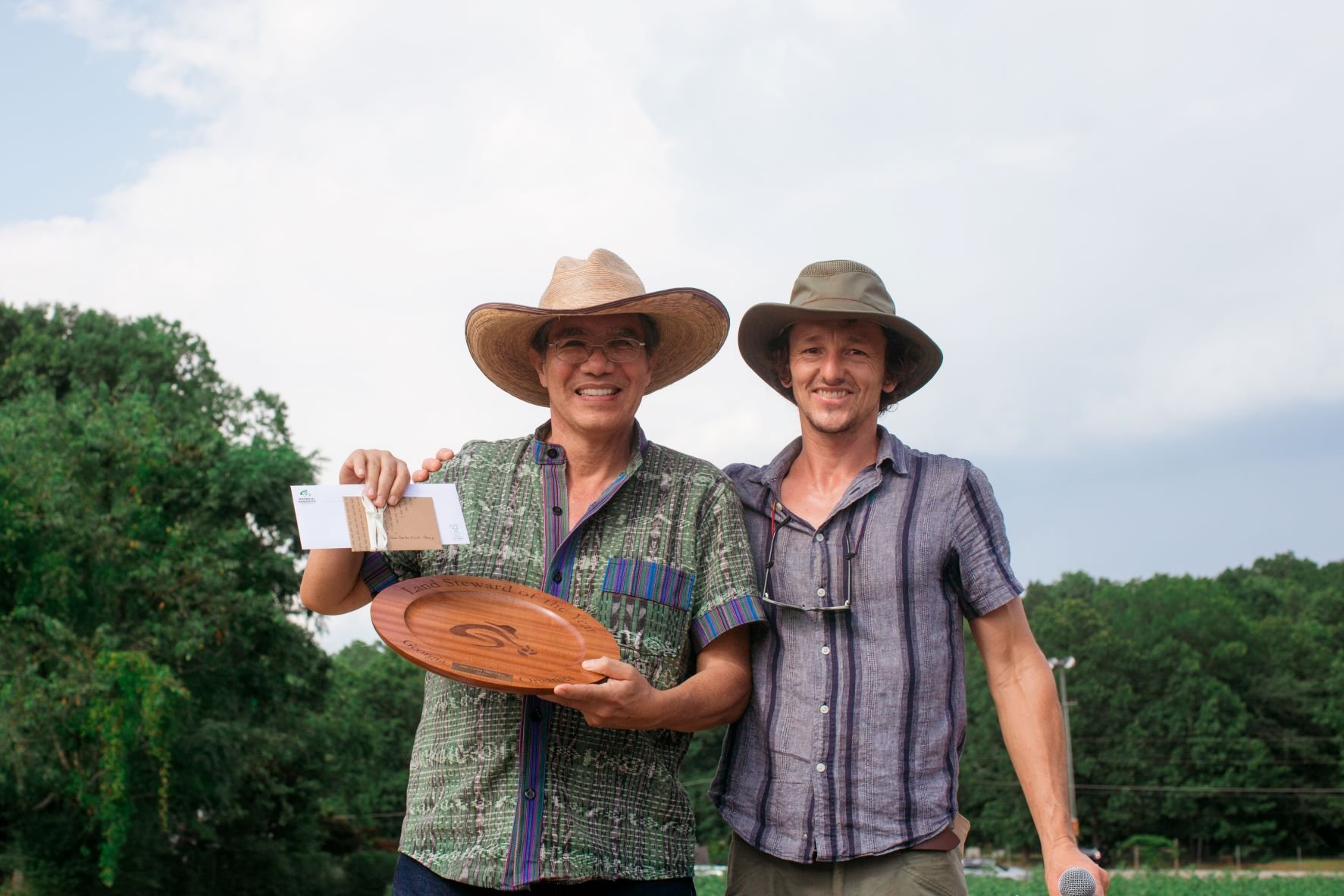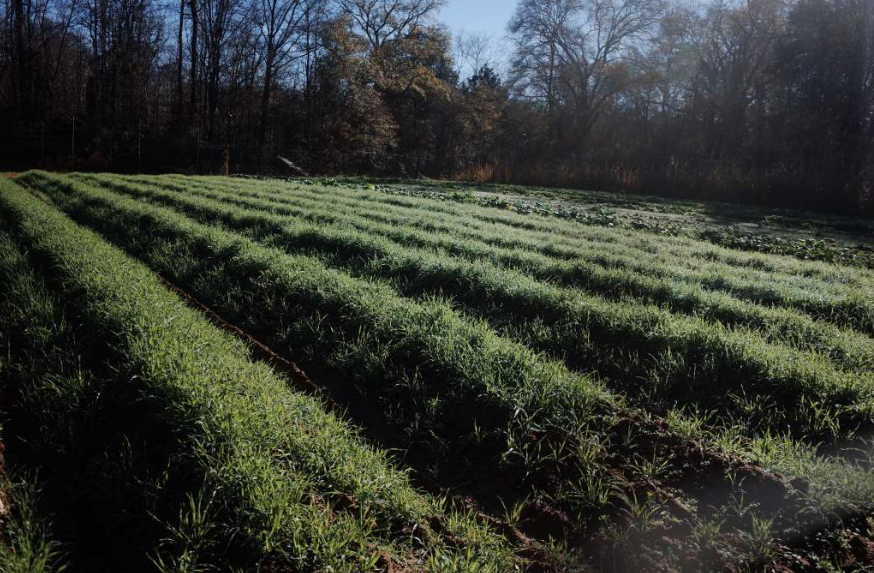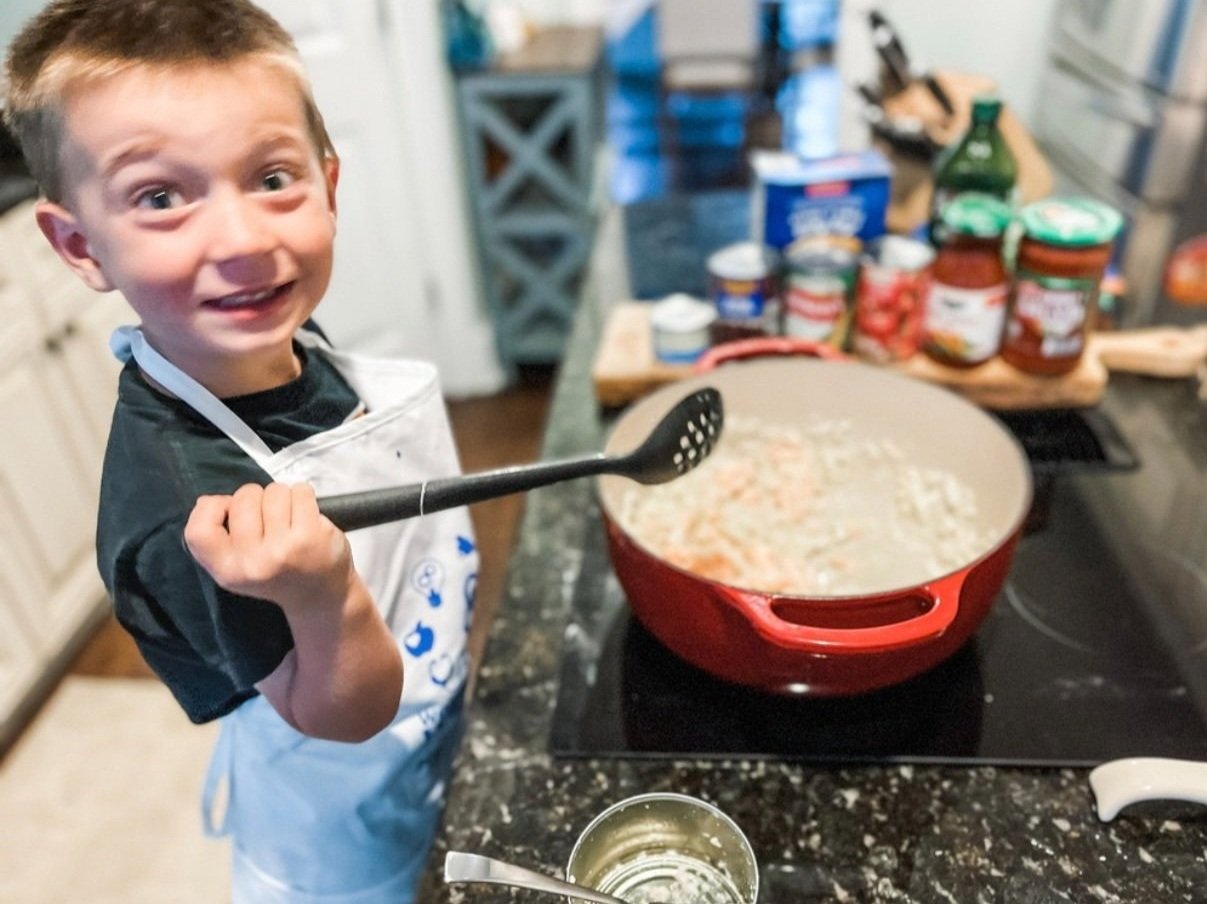By Mary Elizabeth Kidd
Mary Elizabeth is Georgia Organics’ Director of Communications
All photography by Ginger & Carrot Productions
The Barbara Petit Pollinator Award is named in honor of Barbara Petit, a remarkable community food advocate who served as Georgia Organics' past president. This award acknowledges individuals who are successfully advancing—pollinating—Georgia Organics' key tenants: farmer prosperity, healthy soil, and resilient communities.
The 2022 Barbara Petit Pollinator Award winner is Robby Astrove, Preserve Manager at the Davidson-Arabia Mountain Nature Preserve and the so-called “Johnny Appleseed” of Atlanta.
“Robby is what I’d call a ‘creative instigator.’”
Georgia Organics’ President & CEO Alice Rolls continues, “wherever he goes, he brings charisma, a smile, and a giving spirit.”
When asked what drives his creative and connective work, Robby Astrove cites curiosity as one of, if not the key ingredients in his life and career, even from an early age. “Even as a little kid I was always looking out the window,” he says.
Robby grew up in South Florida, playing outside and developing an early understanding of the ecosystems in his own backyard. “I can remember in the fifth grade we took a field trip to the Everglades and I was captivated by it. Not just the ecology, but also the freedom of learning in that space; the fact that we could be ‘in school’ and outdoors.”
His love of the natural world only grew in high school and college. He jokingly references his high school science fair project on the “Fire Tolerance of the Silver Palm,” which read more like scientific research than homework. In college, he charted the course for a new interdisciplinary degree in Florida State University’s School of Geography. His subjects covered city planning, hydrology, native plants and more.
The Florida Everglades and the Kissimmee River served as a natural home base for Robby. This was the site of his first “lightbulb moment” on ecological transformation; it was the topic of his 50-page college paper and was the place his career as an ecologist and educator took root. His first job was on the Kissimmee River where he provided topographical data that would eventually lead to the restoration of the river. He returned to the Everglades watershed again after pursuing a graduate degree from Western Washington University. In this role Robby planted cypress and pond apple trees with K-12 students in Lake Okeechobee. All told, he served as an educator, survey technician, tree planter, and researcher for non-profits, universities, and environmental consultants in this formational stage of his career.
Whether attending conservation conferences or educating Everglades visitors, Robby noted a gap between the urgent concerns of environmental scientists and the average person’s awareness and understanding of the current threats to the natural world and how anyone can affect change in conserving our natural resources.
Within this space between science and citizen action, Robby recognized his role as a translator or bridge for systems change. “If behavior change doesn’t happen, species disappear.”
In 2007, Robby relocated to Atlanta to become an Education Coordinator at Trees Atlanta, directing youth and adult programs on urban forestry restoration and environmental education. From there, his success as an Atlanta transplant in the conservation and local food movement would only grow exponentially.
His lasting impact on Georgia’s food system and environment would only be cemented as he had founding and early roles in the Atlanta Local Food Initiative (ALFI), the ALFI Incredible Edible Fruit Tree Sale, The Orchard Project, and Concrete Jungle. He continues to serve as one of the city’s finest foragers and educates thousands of visitors in his primary job as Preserve Manager at the the Davidson-Arabia Mountain Nature Preserve.
“Robby has been a perennial champion in Georgia's good food scene and has led workshops for Georgia Organics and numerous other groups and communities over the past 15 years. If Georgia Organics recognized Robby, people would come out of the woodwork to join with us and celebrate him because his spirit and passion move people and his track record is undeniable.” concludes Alice Rolls.
Read more about Robby’s impactful Atlanta work here and here and here, but first, enjoy this short conversation with this year’s Pollinator Award winner, including his memories of the award’s namesake, the late Barbara Petit.
Georgia Organics 2022 Pollinator Awardee Robby Astrove with 2021 winners Gwendolyn and Brennan Washington of Phoenix Gardens. Photo by Jenna Shea Photojournalism.
How did you bridge the space between environmental education and Atlanta’s local food movement?
Around the time I came to Atlanta, I started seeing that the food movement around this time was almost one-upping the environmental movement, even tackling issues of justice and equity. The local food space felt more approachable and that it could make a difference. This was reinforced by seeing the success of folks like Erin Croom establishing Georgia Organics’ Farm to School program and Georgia Organics growing as an organization.
Fruit trees really were the bridge between the environment and food spaces. While I was planting trees through Trees Atlanta, I got close to Ebrima Ba in the West End, who created the “Food, Clothing, and Shelter” documentary, and he advised me to start planting fruit trees instead; people were hungry.
Where will Robby Astrove be in 10 years? And what is your hope for a future Atlanta and Georgia food system?
I don’t have a crystal ball, but one thing you can count on is I’ll still be planting. I joked with a friend the other day that if ever I stop planting, they should come and shake me, something is wrong.
As for the future Georgia food system, I definitely hope we have a different food system than we do today. I want to see farmers and growers more respected, but not only that, better cared for, both from inside and outside our industry. They need to be seen and revered more as mission critical members of our society.
I also hope that consumers' choices change. And eventually, of course, policy.
How does your current work feed into this future vision?
I see my role as multipronged. I’m an educator, a connector—a cross-pollinator, like this award—and I finally feel like I carry some influence in this movement, like people can listen to me. This is also where mentorship comes in. I’ve spent a lot of time seeking out elders, mentors; I hope I can be a mentor, no matter what age folks are, I want to make sure we’re all carrying the torch forward.
You shared in your awards video that Barbara Petit (see below), after whom this award is named, was instrumental in what you’re doing today. What are a few things/lessons you learned from her?
My memories of working with her were really about witnessing her leadership and how she brought people together...She was someone with vision and incredible drive. I have so much love and respect for her. She is really who gave me the blessing, the head nod, to start the orchard project, and I was down to do it.
It was Barbara who directly told me: ‘don’t stop planting.’ And that’s my plan.
To hear more from Robby and learn more about the Barbara Petit Pollinator Award, click below.































































